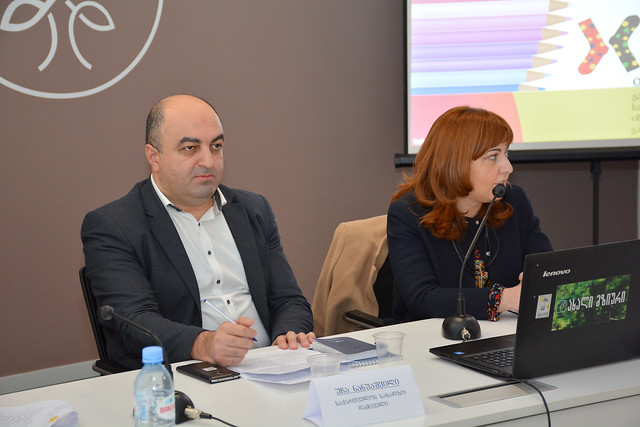Public Defender's Statement on World Down Syndrome Day
On March 21 the world celebrates the World Down Syndrome Day (WDSD). The main aim of the foundation of the Day by the UN General Assembly is to raise public awareness of Down syndrome. The UN resolution calls on all States to promote public awareness about people with Down syndrome, including at the family level[1].
For WDSD 2016, Down Syndrome International will focus on: “My Friends, My Community” – the benefits of inclusive environments for today's children and tomorrow's adults.
The UN Secretary General’s message this year focuses on the important role of people with Down syndrome in the agenda of Sustainable Development Goals (SDG), which should lead the society to progress.
It is welcome that the voices of people with Down syndrome and their families are heard stronger in Georgia every year. It is important to increase the scale of awareness campaigns, but the reality in which individuals with Down syndrome have to live, unfortunately, is not improving. Hate speech, especially by high-ranking public officials, less acceptance, discrimination, exclusion and environment containing stigma creates a society where inclusion opportunities are extremely limited. People with Down syndrome daily encounter barriers in exercising their rights in getting vital services, such as: early medical research and identification of needs, access to social and health care programs, getting quality education at all levels, equal employment opportunities and independent living.
The state's role and effective steps for overcoming these problems are very important. On the one hand – support and strengthening of people with Down syndrome and their families, and on the other hand - effective campaigns, programs, adequate legal protection mechanisms and introduction of preventive measures for human rights violations ensure equal and inclusive environment. Only in similar environment it is possible to ensure decent and independent living, learning, working and inclusion in social life of today’s children and tomorrow’s adults with Down syndrome on an equal basis with others.
It is necessary each member of the community to understand his/her role and responsibilities in terms of building inclusive environment for people with Down syndrome, protection of their dignity and rights. The degree of responsibility is especially high for government officials, politicians and other public activists.
I call on all parties, especially the state, not to contribute with its actions or inaction to the reinforcement of existent stereotypes and negative attitudes, and instead, to address their full efforts to raise public awareness, to improve protection of the rights, social and economic opportunities of persons with Down syndrome and to ensure their full inclusion in the community.
[1] UN General Assembly’s Resolution on World Down Syndrome Day 66/149, 19 December 2011, <http://www.un.org/en/ga/search/view_doc.asp?symbol=A/RES/66/149>
















